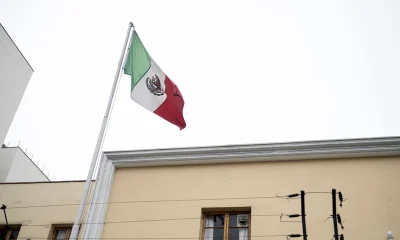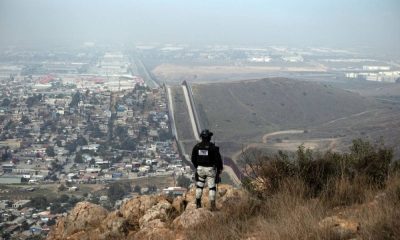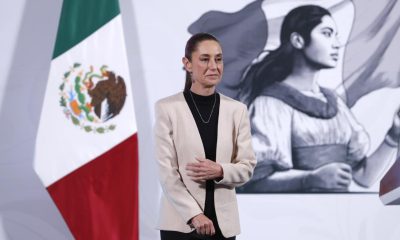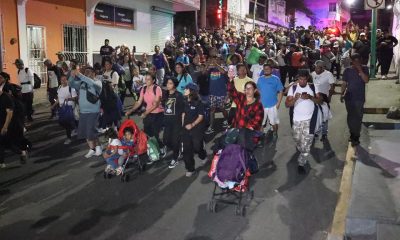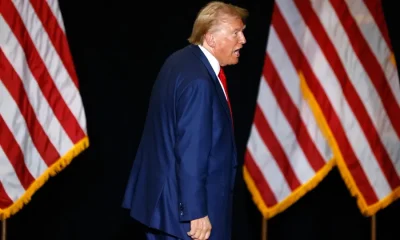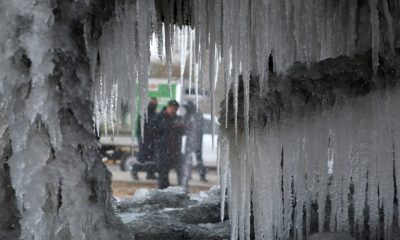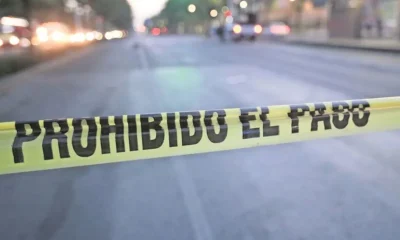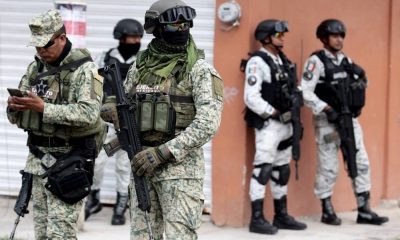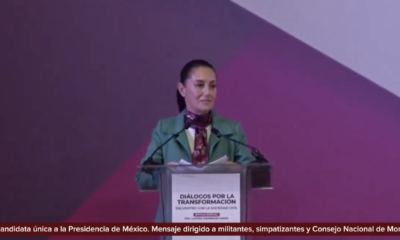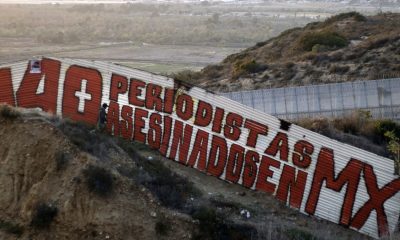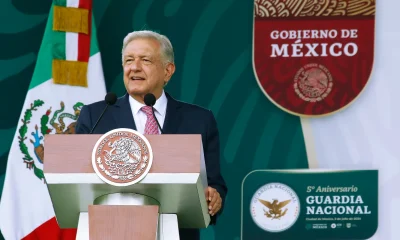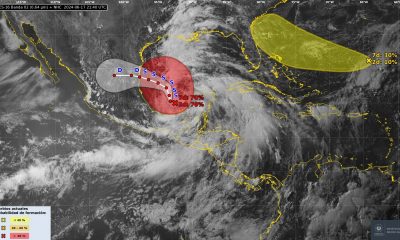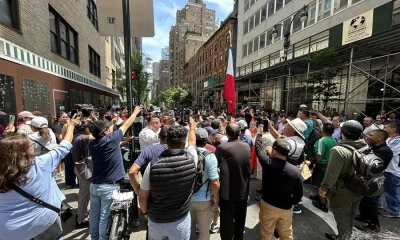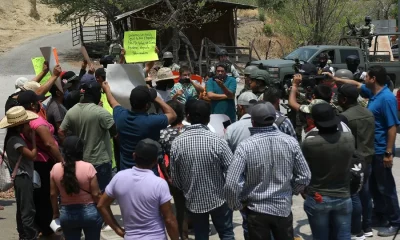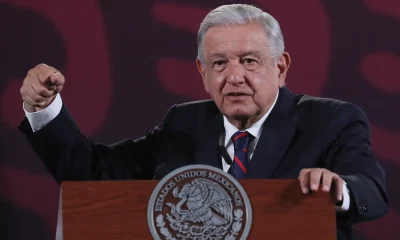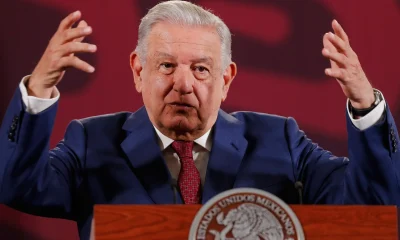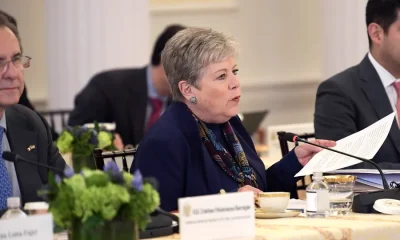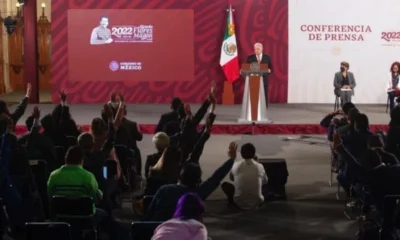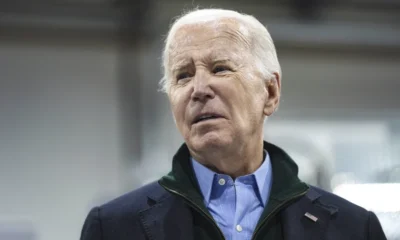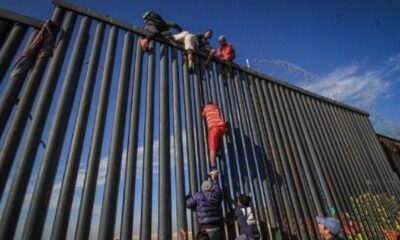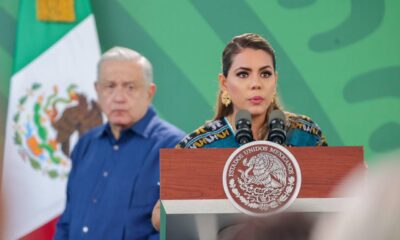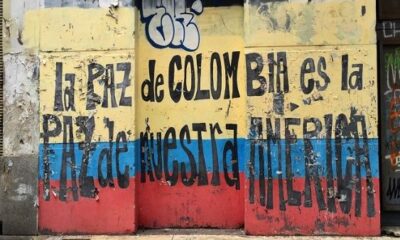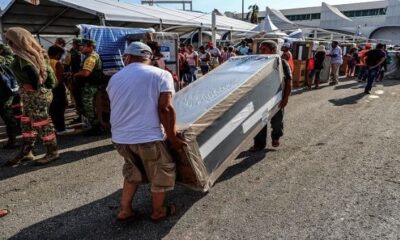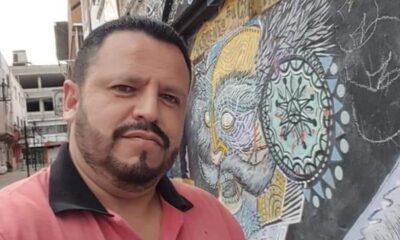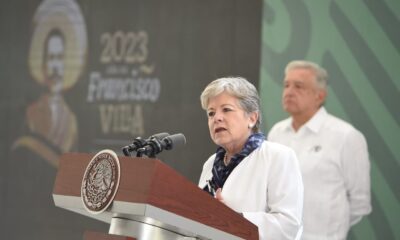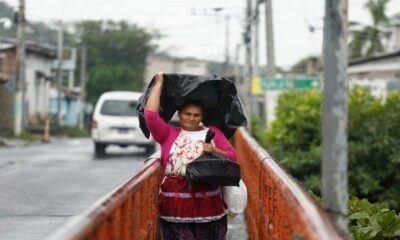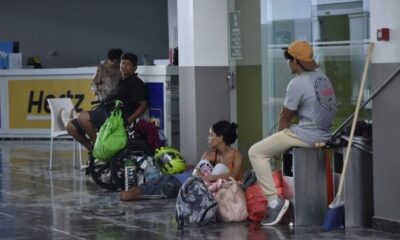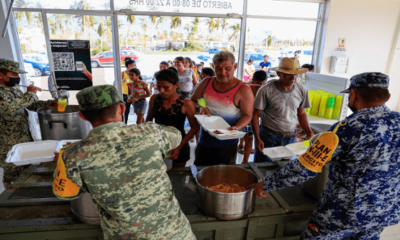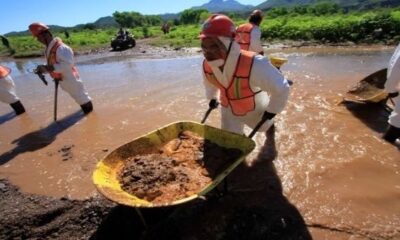International
Mexico to give temporary visas to Central Americans to work in public works
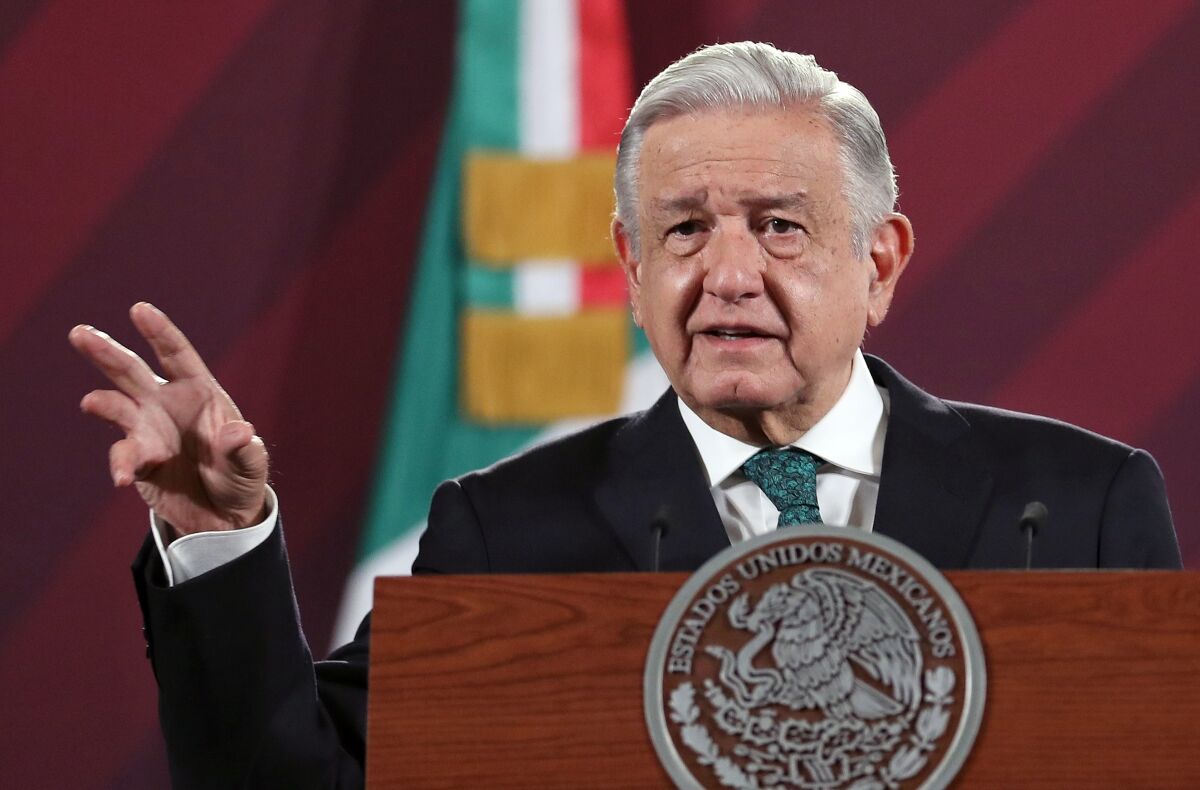
May 23 |
The President of Mexico, Andrés Manuel López Obrador, announced this Monday that his government will grant one-year temporary visas to Central Americans to work in the country’s public works, such as the Mayan Train, one of the most emblematic constructions of his administration.
“This week I am going to present a program for our Central American brothers with the purpose that they can have temporary visas to work in public works in Mexico, that they can be legally in our country with temporary work visas,” informed the president in his daily press conference.
“Wages are also increasing in our country, in the Mayan Train operators, drivers, workers, are already earning better, because there is more demand for employment, so companies are paying more. These are attractive salaries to come, work for 15 days and return,” he explained.
Last Saturday, López Obrador continued, he received a letter from his U.S. counterpart, Joe Biden, congratulating him for the work done on the immigration issue and expressing his commitment to invest more in Central America and the Caribbean.
“We are working together,” the Mexican president assured about this type of immigration policies, which he said still need to be “fine-tuned”.
“It is not right to be rejecting migrants when there is a need for labor force. If not, how will there be growth? There are places in the United States where there are no workers,” he added.
López Obrador admitted that the public works promoted during his six-year term, among which the Mayan Train and the inter-oceanic corridor of the Isthmus of Tehuantepec stand out, are also in need of labor.
“We need many ironworkers, welders, even engineers, professionals,” he stressed.
For the Mayan Train, which will run through the southern region of Mexico and is scheduled to be inaugurated next December, he added that the government is sending drivers or mechanics to Europe for training.
The public works, which López Obrador has turned into the flagship projects of his Administration, have been surrounded by controversy due to the role of the Armed Forces in their construction and management, framed in a series of strategies that have boosted the militarization of the country.
The environmental impact and the impact on the indigenous communities that the Mayan Train will have has also been criticized, effects that the Government has denied.
Regarding potential workers coming from Central American countries such as Guatemala, Honduras, El Salvador and Nicaragua, from where many migrants arrive to Mexico in search of crossing to the United States, López Obrador did not clarify the procedure they will have to follow to obtain a temporary work visa.
International
Spain’s irregular migrant population rises to 840,000, study finds
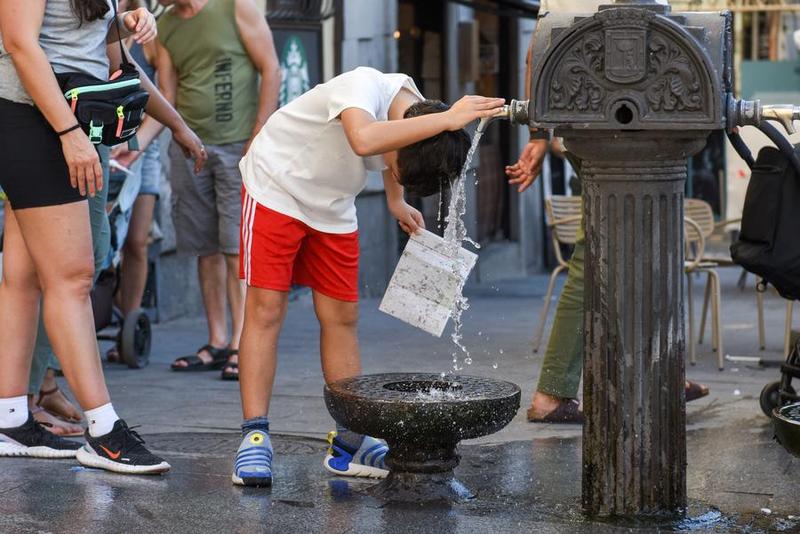
The number of migrants living in Spain without legal residency status continues to rise and has reached 840,000 people, with 91% originating from the Americas, particularly Colombia, Peru and Honduras, according to a report by the Spanish think tank Funcas (Foundation of the Savings Banks).
An estimated 17.2% of the non-EU foreign population living in Spain is in an irregular administrative situation. The estimate is based on the gap between the number of foreign residents effectively living in Spain, according to the National Statistics Institute (INE), and those who hold a residence permit, benefit from international protection, or are in the process of obtaining it.
The data, as of January 1, 2025, point to a notable and sustained increase in irregular migration since 2017, when the estimated figure stood at around 107,000 people, representing 4.2% of the non-EU population residing in Spain.
By origin, migrants from the American continent stand out, totaling around 760,000 people, or 91% of all irregular migrants. Colombians account for nearly 290,000, followed by Peruvians with almost 110,000, and Hondurans with about 90,000. Migrants from Africa (50,000), Asia (15,000) and Europe (14,000) trail far behind.
The figures predate Spain’s latest immigration regulation reform, which came into force in May 2025 and introduces measures to ease access to legal status through residency ties. According to Funcas, the reform would, in principle, tend to reduce the number of migrants in an irregular situation.
International
Historic snowstorm paralyzes Toronto after 60 centimeters of snow

Toronto, Canada’s largest city and the fourth most populous in North America, was largely paralyzed on Monday after a historic snowstorm dumped up to 60 centimeters of snow and sent temperatures plunging to -15 degrees Celsius, authorities said.
Late Sunday, as the scale of the snowfall became clear, city officials declared a climate emergency, triggering extraordinary measures including parking bans on several major streets to facilitate snow removal operations.
Toronto’s public transit authority reported that while some buses remain immobilized, subway and streetcar services are operating with relative normality, though localized disruptions may occur.
A similar situation is affecting the city’s commuter rail network, which remains operational but is experiencing significant delays on its main routes due to the severe weather conditions.
International
Venezuela frees at least 80 political prisoners, NGO says
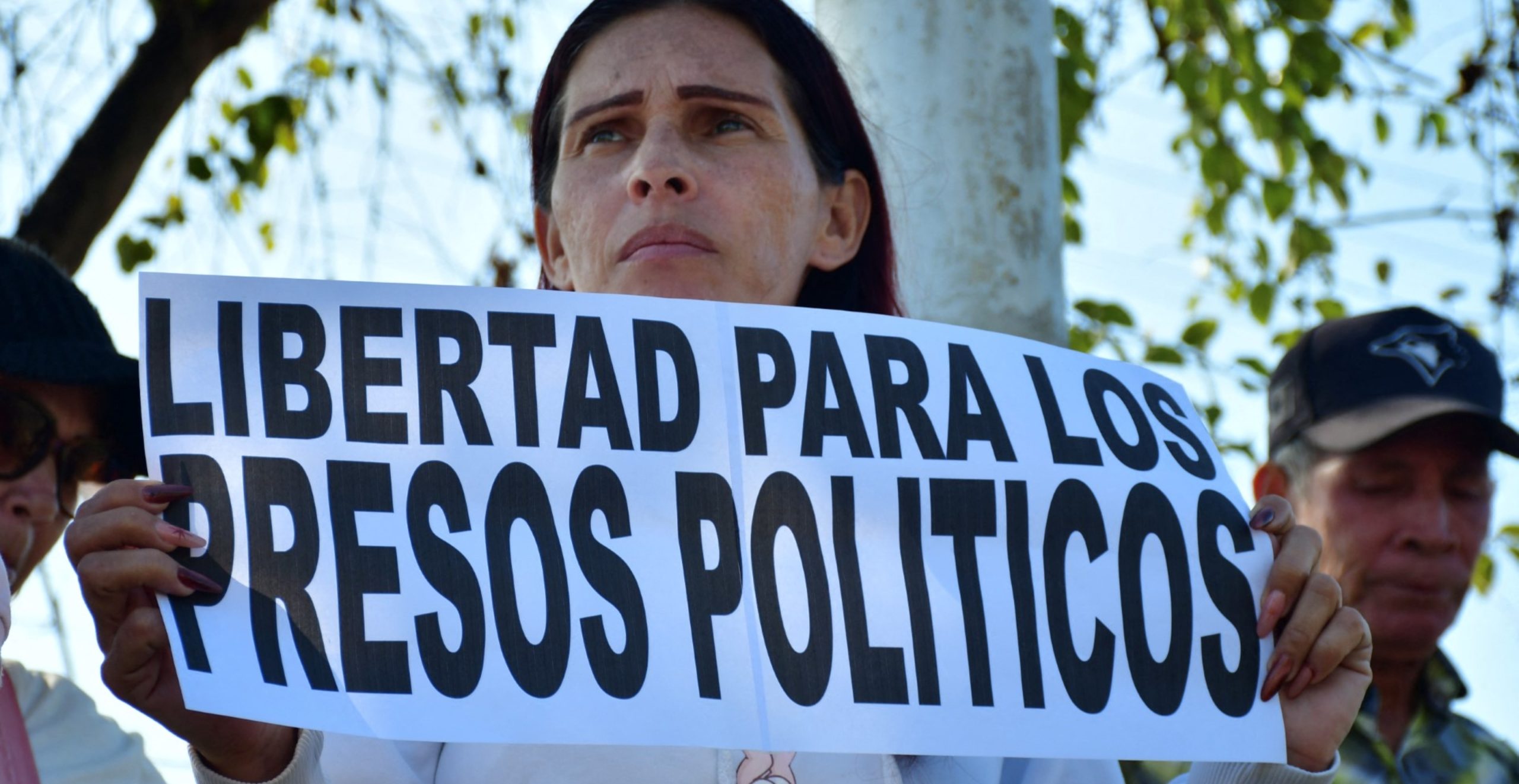
At least 80 political prisoners were released on Sunday across Venezuela, human rights group Foro Penal reported, as the broader process of detainee releases continues at a slow pace under the interim government.
Foro Penal’s director, Alfredo Romero, wrote on social media platform X that verified releases took place nationwide and that the figure could rise as more confirmations are completed.
Attorney Gonzalo Himiob, also from Foro Penal, said the excarcelations occurred during the early hours of the day and emphasized that the number is not yet final pending further verification.
The releases are part of a series of steps announced by Venezuela’s interim leader, Delcy Rodríguez, who took power after the capture of former President Nicolás Maduro in a U.S. military operation on Jan. 3, 2026. Rodríguez has pledged a significant number of liberations but has been criticized by opposition groups and rights organizations for the slow and nontransparent nature of the process.
So far, the Venezuelan government reports that 626 detainees have been freed since December, though independent counts by human rights groups suggest the number of actual political prisoner releases is lower and that many remain behind bars.
Families of those still detained have maintained vigils outside prisons, hopeful for further releases even as broader concerns about political imprisonment and due process persist.
-

 Central America5 days ago
Central America5 days agoMazatenango Carnival cancelled amid State of Siege in Guatemala
-

 International5 days ago
International5 days agoTrump to invite Venezuela’s interim president Delcy Rodríguez to Washington
-

 International5 days ago
International5 days agoMarkets rise as Trump halts Europe tariffs and floats Greenland agreement framework
-

 International5 days ago
International5 days agoVenezuela’s interim president predicts 37% increase in revenues for 2026
-

 International3 days ago
International3 days agoTrump-Era Defense Plan Prioritizes Border Security and Scales Back Global Commitments
-

 Central America3 days ago
Central America3 days agoGuatemala’s president rules out negotiations with inmates after prison riots
-

 Internacionales3 days ago
Internacionales3 days agoMajor winter storm threatens “catastrophic” ice and snow across much of the U.S.
-

 International5 days ago
International5 days agoJapan reopens Kashiwazaki-Kariwa Plant despite public concerns
-

 International5 days ago
International5 days agoFour minors killed in deadly clash between FARC dissidents in Colombia’s Amazon
-

 International3 days ago
International3 days agoBogotá and Quito Seek Dialogue After Tariffs and Power Cut Escalate Tensions
-

 International3 days ago
International3 days agoGuatemala considers sending high-risk gang members to military prisons
-

 International2 days ago
International2 days agoDelcy Rodríguez seeks political agreements after Maduro’s ouster
-

 International2 days ago
International2 days agoFederal immigration agents kill man in Minneapolis, sparking protests and outrage
-

 International3 days ago
International3 days agoRights group says over 5,000 killed in Iran protests, mostly civilians
-

 International14 hours ago
International14 hours agoHistoric snowstorm paralyzes Toronto after 60 centimeters of snow
-

 International14 hours ago
International14 hours agoSpain’s irregular migrant population rises to 840,000, study finds
-

 Central America15 hours ago
Central America15 hours agoGuatemala seizes over a ton of cocaine hidden in flour at Pacific port
-

 International15 hours ago
International15 hours agoRights group says nearly 6,000 killed in Iran protest crackdown
-

 International14 hours ago
International14 hours agoVenezuela frees at least 80 political prisoners, NGO says
-

 International15 hours ago
International15 hours agoEU launches new probe into X over AI-generated fake nude images
-

 International15 hours ago
International15 hours agoFrance debates ban on social media for children under 15
-

 International15 hours ago
International15 hours agoSevere winter storm grips U.S., leaves multiple dead as extreme cold persists

























